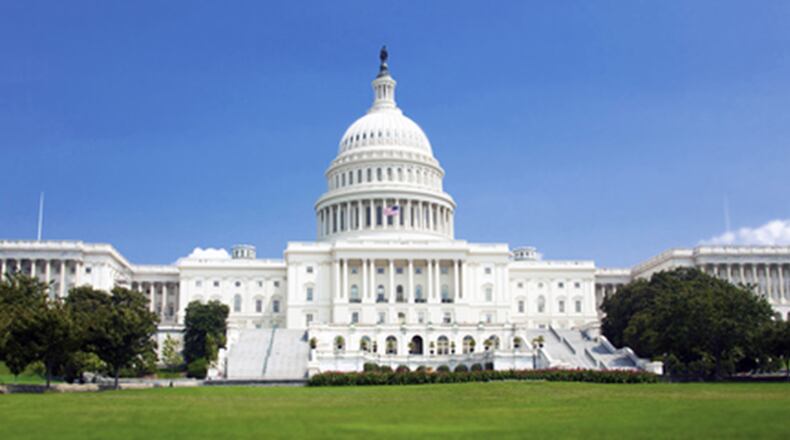WASHINGTON — A central challenge of the Trump era is how to deal urgently with the president’s transgressions while also taking steps to prevent politicians from abusing power in the future.
Equally important is restoring faith in our republican democracy as a genuinely representative system that is open to broad participation and protected from the outsized influence of the financially privileged.
President Trump is doing far more to pollute the political “swamp” he loves to invoke than draining it. But this doesn’t mean that citizens worried about the swampiness of our politics are wrong.
So here’s a challenge to citizens and the media alike: Pay attention this week to the House debate over H.R. 1, perhaps the most comprehensive political-reform proposal ever considered by our elected representatives.
Perhaps it’s inevitable that Trump and his antics will always get more attention than any bill that includes lots of provisions. Legislation makes us work our brains a lot harder than Trump does.
But let’s not hear the excuse that there’s no point spending much time on legislation that, while likely to pass a Democratic House, has no chance in the Senate. That less-representative body — always remember that Wyoming has as many senators as California — is controlled by Republicans and led by Sen. Mitch McConnell, R-Ky., who hated campaign finance reforms when they were proposed in the early 2000s by his late GOP colleague John McCain, and despises them still.
The House proposal, sniff the cognoscenti, is merely a “messaging bill.”
Actually, no. It’s a marker, a bill worth fighting for in the future. Recall that versions of Medicare, the Tennessee Valley Authority, and more expansive civil rights proposals all languished in Congress or were defeated before they passed.
What commends H.R. 1 is its comprehensiveness. It brings together traditional reformers (with strong incentives encouraging candidates to rely on small rather than large contributions, and tougher disclosure requirements of who is paying for what ads) and civil rights advocates (with provisions for automatic voter registration, expanded early voting, a ban on unjustified voter purges and re-enfranchisement of those who have served felony sentences). It also lays the groundwork for renewing the Voting Rights Act’s effectiveness.
H.R. 1 has a battery of measures to deal with ethical lapses specific to Trump. These include tough provisions on presidential conflicts of interest and a requirement that presidential and vice presidential candidates disclose their income tax returns. And it confronts core problems our democracy faces by banning gerrymandering and calling for the use of paper ballots in federal elections to protect against hacked voting machines.
There’s more there, but you get the drift. For all the talk of Democrats being divided between “the left” and “the moderates,” this bill has support from all wings of the party. The left and center both worry about the undue influence of corporate money and billionaires on our politics. And, needless to say, political corruption is not particularly popular in any ideological camp.
As with any bill, the question needs to be asked: Is it addressing real, widely recognized problems, or is it more of a hobby-horse reflecting concerns that may be valid but are hardly front-burner?
Fred Wertheimer, the veteran political activist who helped develop H.R. 1, offered as clear an answer as I have heard about the genuine urgency of fixing our democracy.
“We have a campaign finance system we haven’t seen since the Gilded Age,” he said. “We have efforts at voter suppression we haven’t seen since the days of segregation. We have gerrymandering at a level we have never seen before. And we have a president who raises financial abuse and corruption issues we haven’t seen in generations.”
Now, tell me again: Why should we ignore what the House is up to here and just go back to the latest incremental development in the Michael Cohen story?
Of course the Trump saga matters. Friends of decent government should welcome the fact that Congress — scratch that, the Democratic House — will be putting a lot of time and resources into getting to the bottom of a variety of allegations against the president.
But we must also ponder what our democracy will be like after Trump, and begin tending to what is in such desperate need of repair.
As for the opponents of H.R. 1, they need to tell us if they think our politics are working just splendidly. I’d love to hear them try to make that case. And if they don’t, what exactly would they do to drain the swamp?
About the Author




